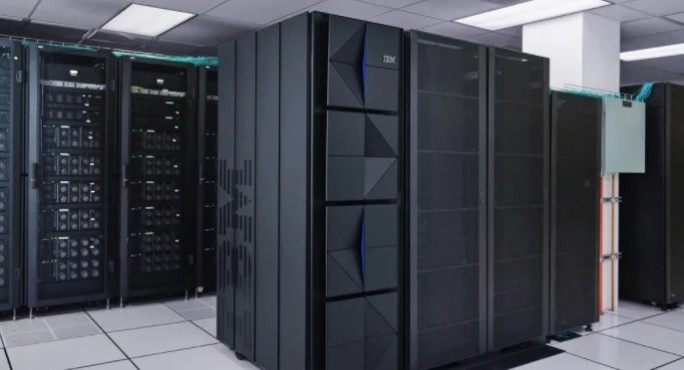
What are the advantages of using a mainframe computer and how secure are mainframe computers?
Mainframe computers have been around for several decades and continue to be used by many organizations today. These powerful machines offer a number of advantages, including high processing power, scalability, and reliability. Additionally, #mainframe computers are known for their high level of security, making them a popular choice for industries such as banking and healthcare.
Advantages of using a mainframe computer:
- High processing power: Mainframe computers are designed to handle large volumes of data and can process a huge number of transactions simultaneously. This makes them ideal for organizations that need to process large amounts of data quickly.
- Scalability: Mainframe computers can easily be scaled up or down depending on an organization's needs. This allows organizations to add more computing power as they grow, without having to replace their existing hardware.
- Reliability: Mainframe computers are known for their high level of reliability. They are designed to run 24/7 and have built-in redundancy features to ensure that critical systems are always available. This makes them ideal for organizations that require high levels of uptime.
- Cost-effective: Although mainframe computers can be expensive to purchase and maintain, they can also be very cost-effective for organizations that need to process large amounts of data. By consolidating multiple workloads onto a single machine, organizations can reduce their overall hardware and software costs.
- Security: Mainframe computers are known for their high level of security. They use advanced encryption techniques to protect sensitive data and have built-in security features to prevent unauthorized access. This makes them ideal for industries such as banking and healthcare, where data security is critical.
How secure are mainframe computers?
Mainframe computers are known for their high level of security. They use advanced encryption techniques to protect sensitive data and have built-in security features to prevent unauthorized access. Additionally, mainframe computers are often used in industries such as banking and healthcare, where data security is critical.
One of the key security features of mainframe computers is their ability to control access to data. Mainframe computers use a system of access controls to ensure that only authorized users can access sensitive data. This system is typically managed by a central security administrator, who can grant or revoke access to specific users or groups.
Mainframe computers also use advanced encryption techniques to protect data in transit and at rest. This includes using strong encryption algorithms to protect sensitive data as it is transmitted across networks, as well as encrypting data that is stored on the mainframe computer itself.
Finally, #mainframecomputers often have built-in redundancy features to ensure that critical systems are always available. This includes using redundant power supplies, network connections, and storage devices. By ensuring that critical systems are always available, mainframe computers can help prevent data loss or downtime due to hardware failures or other issues.
In conclusion, mainframe computers offer a number of advantages, including high processing power, scalability, reliability, and security. Although they can be expensive to purchase and maintain, they can also be very cost-effective for organizations that need to process large amounts of data. Additionally, their high level of security makes them ideal for industries such as banking and healthcare, where data security is critical.
--
1moGreat